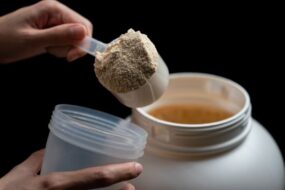

In today’s world, where pollution hangs heavy in the air and allergens lurk around every corner, taking a deep breath can feel like a luxury. Yet, the ancient wisdom of Ayurveda whispers secrets of natural remedies, reminding us that respiratory wellness is not a privilege, but a birthright.
So, step away from the crowded pharmacies and step into a world where nature’s bounty unlocks the power of clear lungs and vibrant breath.
Ayurveda’s Holistic Approach:
Unlike conventional medicine, which often treats symptoms in isolation, Ayurveda views respiratory health as a reflection of your overall well-being. It considers your unique dosha (body type) and environmental factors to pinpoint imbalances that compromise your breath. This holistic approach offers not just temporary relief, but long-term solutions for strengthening your lungs and building resilience against respiratory woes.
The Arsenal of Breath:

Ayurveda’s treasure chest overflows with natural allies for your respiratory journey. Let’s explore some potent weapons in this arsenal:
- Steam Inhalations: Infuse the air with the healing powers of herbs like eucalyptus, basil, and turmeric. Breathe deeply as the steam clears congestion, soothes sore throats, and loosens phlegm. Imagine the sweet scent of eucalyptus clearing your airways and gifting you with a refreshing sigh of relief.
- Nasya: This nasal administration of medicated oils, like Anu Taila, directly targets the respiratory system. It stimulates sinus drainage, alleviates headaches, and strengthens the immune system. Picture a tiny drop of precious oil, gently coaxing your sinuses back to balance and leaving your head feeling light and clear.
- Herbal Teas: Sip on warm infusions of ginger, licorice root, and tulsi for their anti-inflammatory and expectorant properties. Each sip soothes irritation, eases coughs, and promotes natural healing. Imagine the comforting warmth of ginger tea melting away discomfort, leaving you with a gentle glow and a whisper of renewed breath.
- Pranayama: The art of yogic breathing is not just about oxygen; it’s about conscious energy flow. Techniques like Kapalbhati (skull-cleansing breath) and Bhastrika (bellows breath) clear stagnation, improve lung function, and boost vitality. Imagine a wave of invigorating breath washing over you, revitalizing your energy and leaving you feeling light and vibrant.
- Diet: Ayurveda emphasizes consuming warming foods like honey, ginger, and ghee, which soothe the respiratory system. Avoid cold, heavy foods and excessive dairy, which can create congestion. Imagine yourself nourishing your body with simple, flavorful meals that support your breath and fuel your well-being.
Beyond the Physical:


Respiratory health isn’t just about lungs; it’s about creating a holistic sanctuary for your breath. Here are some ways to weave Ayurveda’s wisdom into your daily life:
- Create a peaceful environment: Breathe easy in a clean, clutter-free space. Diffuse calming essential oils like lavender or sandalwood to induce relaxation and soothe the mind.
- Practice mindful living: Stress and negative emotions can constrict your breath. Meditate, practice yoga, or spend time in nature to nurture inner peace and promote deeper, calmer breathing.
- Embrace mindful sleep: Sleep deprivation weakens the immune system and makes you vulnerable to respiratory problems. Prioritize sleep hygiene, create a calming bedtime routine, and nourish your body with sleep-inducing herbs like ashwagandha.
FREQUENTLY ASKED QUESTIONS:
Q1. I’m new to Ayurveda. What are my doshas and how do they affect my respiratory health?
In Ayurveda, your dosha (body type) plays a crucial role in your overall health, including respiratory wellness. Here’s a quick overview:
- Vata dosha: Air and space elements dominate Vatas, making them prone to dryness, anxiety, and cold sensitivity. They benefit from warming herbs like ginger and licorice root, and practices like Kapalbhati pranayama to strengthen their lungs.
- Pitta dosha: Fire and water elements define Pittas, who can experience excess heat and inflammation. Cooling herbs like neem and tulsi, and techniques like Bhastrika pranayama are valuable for balancing their respiratory system.
- Kapha dosha: Earth and water elements make Kaphas naturally strong and resilient, but also prone to heaviness and congestion. Stimulating herbs like eucalyptus and black pepper, and practices like Ujjayi pranayama aid in clearing their airways.
Understanding your dosha helps you choose the right Ayurvedic remedies for optimal respiratory health. Consult an Ayurvedic practitioner for a personalized dosha assessment and tailor-made solutions.
Q2. Can Ayurvedic remedies treat chronic respiratory conditions like asthma?
Ayurveda doesn’t claim to cure chronic conditions, but it can effectively manage symptoms and improve overall well-being. Herbs like ashwagandha and turmeric possess anti-inflammatory properties that can ease asthma symptoms and enhance lung function. Practices like Pranayama and mindful breathing can help manage stress and anxiety, often associated with asthma flare-ups.
However, remember that Ayurveda complements, not replaces, conventional medical treatment for chronic conditions. Always consult your doctor alongside exploring Ayurvedic options for holistic management.
Q3. I live in a polluted city. Can Ayurveda help protect my lungs?
Absolutely! Ayurveda offers potent lung-protective measures against pollution’s harmful effects.
- Nasya: This nasal administration of medicated oils like Anu Taila cleanses and lubricates the nasal passages, trapping pollutants before they reach your lungs.
- Herbal drinks: Teas with licorice root, amla, and tulsi act as antioxidants and help detoxify the body, neutralizing pollution’s damaging effects on your respiratory system.
- Pranayama: Techniques like Kapalbhati and Bhastrika stimulate the lymphatic system and promote lung cleansing, aiding in eliminating pollution buildup.










